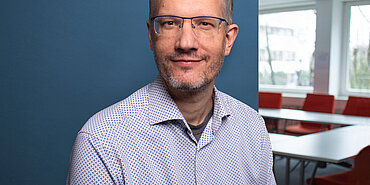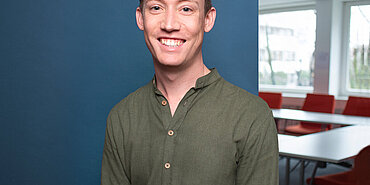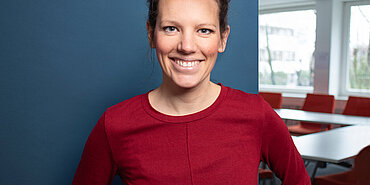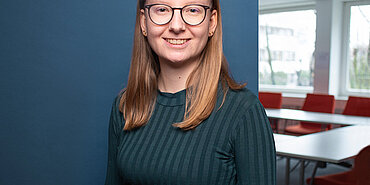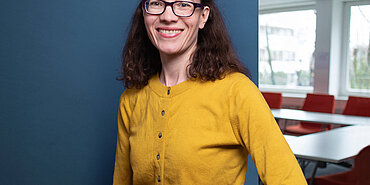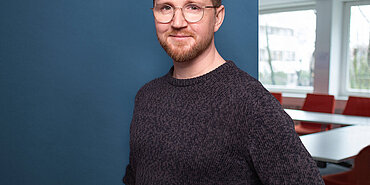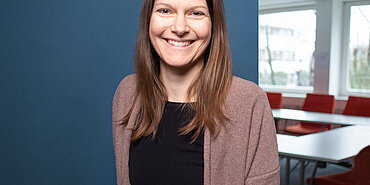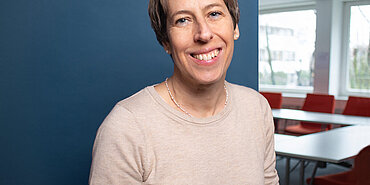ijab.de: The report on your survey says that the workload of youth information services increased during the Corona crisis and this despite the fact that facilities were closed for an average of 17 weeks in 2020. What is the background?
Audrey Frith: Youth information is often embedded in general youth work and that relies on us meeting young people face to face. This was not possible for a long time and many of us had to completely reorganise our work. They had to adapt to working with digital tools, learn a lot and try a lot. If plan A didn't work, they had to come up with plan B and then maybe plan C. That takes time and costs a lot of extra working hours.
ijab.de: Were you able to provide support from Eurodesk's Brussels headquarters?
Audrey Frith: Yes, we saw that as one of our tasks. We have created Zoom and Google Meet accounts that all our members can use. And of course we have also provided training on how to use these tools in a useful way. I think that was a good support for our members.
ijab.de: Will these tools continue to be used after the end of the pandemic?
Audrey Frith: The skills acquired will remain, yes. This is especially true for social media, the use of which for communication many have acquired in the last few months. That will certainly remain. But what I also hear from many is that they want to go back to the roots of their work, to real encounters and work with young people. That doesn't surprise me either. Many have spent so much time in Zoom meetings that they just can't see it any more. This is not only true for our colleagues, it is also true for young people. What we also notice: We are losing contact with disadvantaged young people for a variety of reasons. Recently, our members have increasingly been invited to schools to talk about the possibilities of stays abroad. This is a return to face-to-face encounters and opens up opportunities for new partnerships.
Is a new digital divide looming?
ijab.de: You said that youth information is in danger of losing disadvantaged young people. Has the Corona pandemic led to a new digital divide?
Audrey Frith: The biggest difficulty for many is the lack of equipment to participate in digital services. Not everyone has a laptop or tablet. This is true for our colleagues as well as for young people - especially the disadvantaged. We are really dealing with a new digital divide.
ijab.de: Is more funding, training and support needed to solve this problem?
Audrey Frith: Yes, of course. Many of the respondents tell us that they need equipment, but also communication experts who can show them how to use the equipment and lead their online activities. Of course, it depends very much on the country. Only 11% of the colleagues told us that they had received sufficient financial support. For the vast majority, the support was not sufficient and many institutions even run the risk of having their funding cut in the coming years. This has a lot to do with the extent to which youth information and youth work are generally recognised in the respective countries. The money spent in the Corona crisis will have to come from somewhere, and one has to look with concern at the youth sector.
Some institutions have been able to fill gaps by relying on networks such as Eurodesk- this concerns access to tools and trainings, for example but not the structural side.
"We want to send a positive message"
ijab.de: The survey report concludes that youth information will emerge stronger from the Corona crisis. After all we have talked about, that sounds optimistic.
Audrey Frith: Yes, it sounds very optimistic. But in terms of digitalisation, we have also come a long way. We have really become stronger there. Of course, we also wanted to send a positive message and tell our members not to hang their heads now. Nevertheless, we have to keep an eye on the framework conditions of youth work and youth information and I am less optimistic about that. We need more recognition from member countries for our work, but we have limited influence on that.
ijab.de: You said that many respondents want to go back to face-to-face meetings. When might that be the case?
Audrey Frith: That is a very difficult question. Even we at Eurodesk Brussels Link find it difficult to plan meetings of our member organisations. More and more countries have been able to organise analogue meetings again, with smart initiatives such as biking information tours to keep distances, and at the same time there are many indications of a fourth Corona wave.
Soon the Time to Move campaign will start and we have decided to provide guidelines on both digital and outdoor activities. We will see how that works and will evaluate it accordingly. In general, I think we have to stand on two legs. We have to maintain our online services and at the same time try out what is possible offline.
As far as the online services are concerned: they have to be fun, otherwise they are unattractive for young people. Many already go to school online, they don't want to do anything similar in their free time. Eurodesk has for example developed a new online Escape Room to be launched during the Time to Move campaign. The pandemic forces us to be creative - even more than in our usual work.


![[Translate to Englisch:] [Translate to Englisch:]](/fileadmin/_processed_/2/8/csm_Eurodesk_2a602875ad.png)
